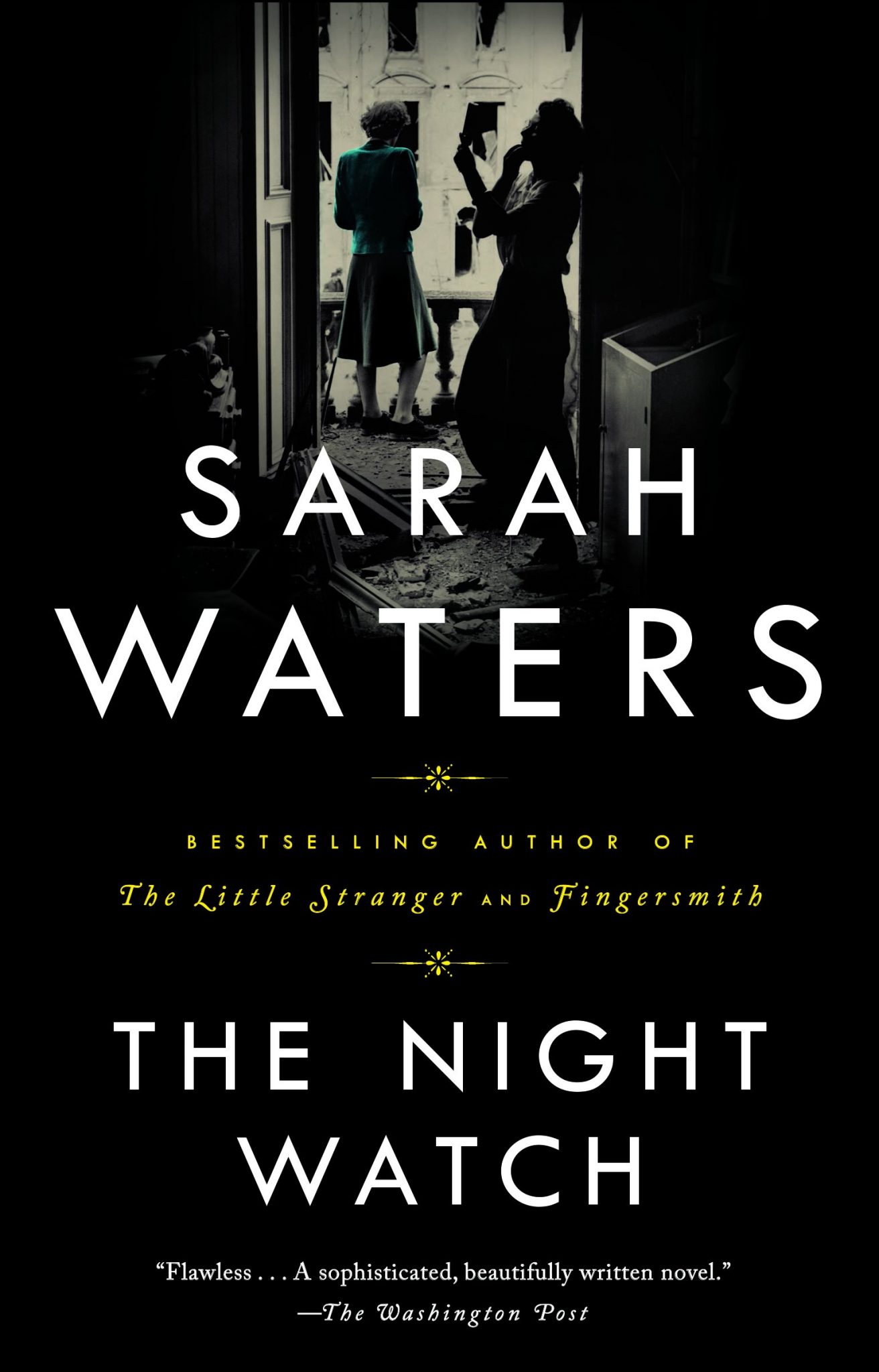Like basically every other queer lady bookworm my age, Tipping the Velvet and Fingersmith matter to me. Until recently, though, I hadn’t tried Sarah Waters’ other work. I read The Night Watch on a whim, and I’m glad I did. This quiet slice-of-life novel is slow, but I fell in love with the characters. This novel is told backwards, starting with a couple weeks in 1947, then covering a few months in 1944, and finally showing the events of a handful of days in 1941. It tells the intersecting tales of three women and one young man in London. Each is, in their own way, privately reeling from past hurt, and the reasons for their pain are teased out over the course of the book.
The novel opens with Kay, a masculine lesbian who is renting a flat from a faith healer. Kay spends her days walking, going to the movies, and visiting a friend she met as an ambulance driver during the war. The story soon shifts to Viv and Helen, friendly colleagues who each have secrets. Helen lives with her girlfriend, a writer named Julia, but to the world they pretend they are only friends. Viv has illicitly been seeing her boyfriend, Reggie, for years, and their once passionate relationship has fizzled. The narration also focuses on Viv’s brother, Duncan, a young man living with an older man who he calls his uncle. Duncan works in a factory, and once a week takes his “uncle” to the faith healer below Kay’s flat. When Duncan unexpectedly encounters someone from his past, it threatens to upend his life as well as Viv’s. Each character’s post-war life is presented matter-of-factly and with a tinge of mystery of what how exactly they ended up with their present struggles. Why is Kay lost and depressed? What keeps Viv with Reggie? Why is Helen so paranoid about her relationship with Julia? Why is Duncan underachieving and living with this “uncle”? What connects Viv, Helen, Duncan, and Kay?
The story then moves back years earlier, during the war, and provides a dramatically different view of the same characters and their relationships. The bulk of the story takes place in this period and reveals most of the reasons for their post-war malaise. Finally, the novel concludes with a single event in each character’s life that placed them on their course.
The book was heartbreaking and very beautiful. I loved the inventive structure and once I was invested, I cared about the characters. The horrors of the blitz are portrayed in visceral detail, as are other private horrors that the characters face. Discovering how each character ended up in their situation is fascinating, and incredibly sad. Waters knows how to evoke emotion without being cloying or sentimental, and she does not pull punches with this book.
I loved it, but other readers may find The Night Watch too depressing. I felt emotionally drained when I finished it. For me, it was worth it, but fans of happy endings might disagree. Whether or not you enjoy the book depends largely on the degree to which you engage with the characters, and not everyone will like these reserved Londoners and their private struggles. This is not a novel with an action-packed plot, which keeps the reader close to the main characters. If you don’t connect with the characters during the 1947 section, you probably won’t enjoy hundreds more pages with them. If you appreciate them, however, the book is haunting. I particularly felt for Kay, a gallant butch with the ability to stay calm in a crisis, whose bravery was essential in World War II but seems to have no place in 1947. I rarely see characters like Kay, even in lesbian books, though she incredibly true to people I’ve known in real life. I sometimes wished the book was just Kay’s story plus Helen’s, as I found Viv and Duncan sort of boring initially. By the end Viv and Duncan won me over, and Duncan’s 1941 scene was incredibly powerful and emotionally devastating, but Kay was still my favorite.
Did I like The Night Watch more than my long-standing Sarah Waters favorites? No, but it was gorgeous. I highly recommend it. Just keep some tissues handy.



Widdershins says
Reading Sarah Waters is like having a long slow love affair with words.